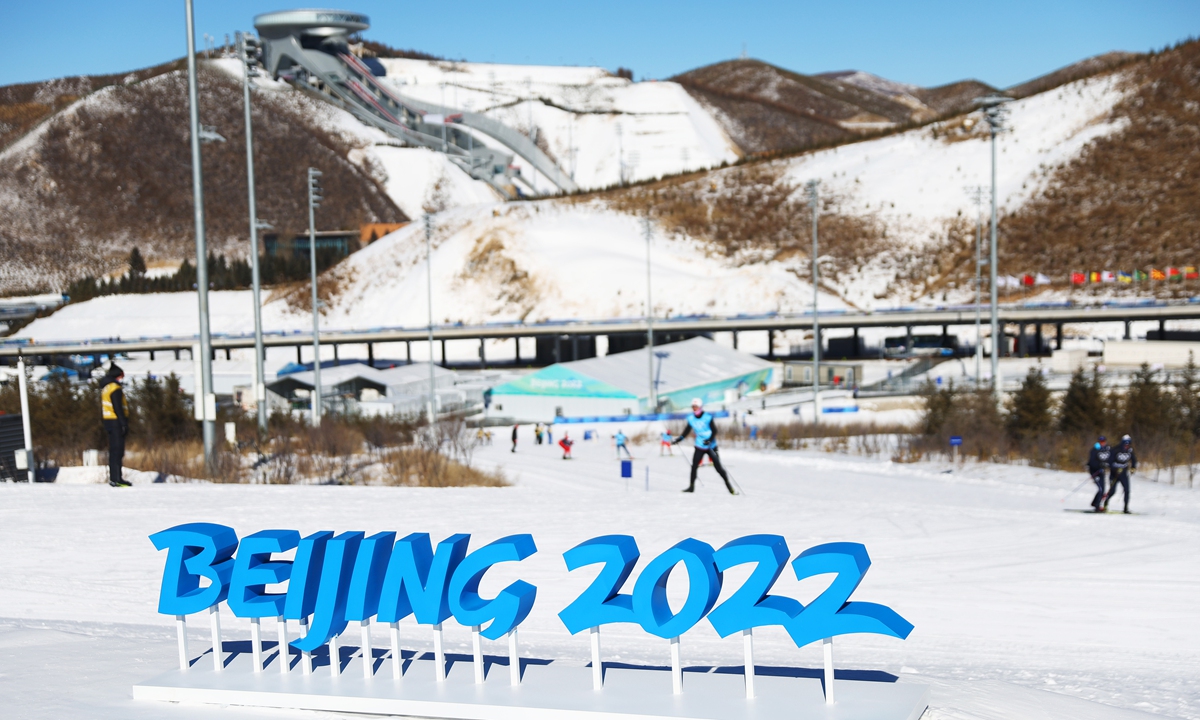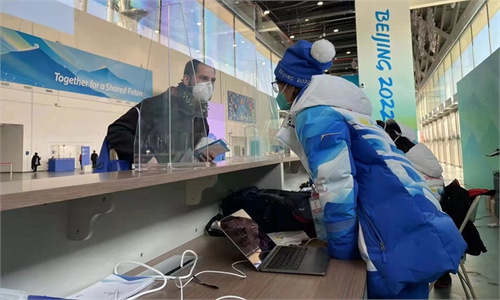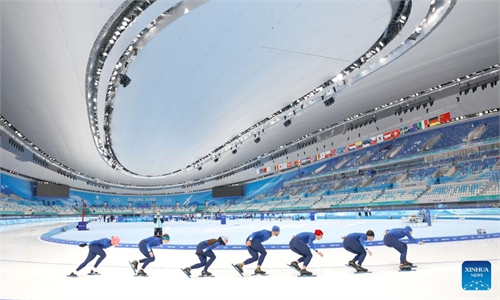Demonizing Beijing Winter Games a sad example of US efforts to obscure China's achievements

Photo: CFP
In the summer of 2008, I was living in Beijing, working with an American study-abroad program at Capital Normal University. The city was filled with excitement in anticipation of the Olympics, with athletes arriving from around the world and local people joining in a wide range of activities preparing for the big event. Many thousands of citizens volunteered at information booths or in other roles to assist foreigners who were coming to attend the Games and were exploring China's capital, learning about the achievements of local people and their continuing work to build a better future for their country. Our American students shared in this excitement. There was a great feeling of energy as the opening ceremonies approached.
Anyone who witnessed those ceremonies, in person or on television, will remember the amazing impression they made. The 2008 Olympics were a moment when China took a prominent place on the world stage, showing off the rising prosperity of its people and the glories of its ancient civilization. Western media coverage of the Olympics was positive, recognizing the Games as a marker of China's re-emergence as a major participant in international affairs, resuming the place of prominence it had long occupied before the era when Western imperialism had imposed the harsh period of exploitation and humiliation which was ended with the founding of the People's Republic of China in 1949.
Today a new Olympic Games event is underway in China: the 2022 Winter Olympics. But this time, the Western world, most especially the US mainstream media and politicians, is uniformly hostile, attacking China for the way it governs itself, portraying the country as repressive and accusing the country of all kinds of bad policies and practices. This is in fact just a particularly intense version of a campaign of demonization which has been carried on for more than a decade, as the US seeks to block China's development and isolate it internationally. Why has the reaction to the Winter Olympics been so different from the way the world welcomed and admired China in 2008?
One way to understand the changing relationship between China and the West is to consider the changes that have taken place in both areas over the last 14 years, since the 2008 Olympics. At that time, China was pursuing its policies of reform and opening-up, seeking to develop its economy through engagement with the global economic system, growing its productive capacities and enhancing its technological capabilities. It was deferential to the leading role the US played in that global economic order, while remaining true to the needs and interests of the Chinese people. China's leaders understood that developing its modern economy and society was a long-term project, and they were patient in its implementation.
In 2008, the global financial crisis erupted, and the effects of that in China and the West were very different. In China, while 20 million workers were laid off due to declining export demand, the country's core socialist system allowed the crisis to be managed without great human suffering. Policy adjustments and careful interventions by the government minimized disruptions and got people back to work as quickly as possible. In the West, again especially the US, millions of people permanently lost their jobs, while many millions more lost their homes. The wealthy elites prospered, with bailouts funded by ordinary working taxpayers saving financial corporations deemed "too big to fail." The ongoing decline of the American economy intensified, with effects still being felt today. The contrast with China was stark, making clear the rising trajectory of the People's Republic of China and the continuing erosion of the US economy at home and around the world. The era of American global dominance was coming to an end.
American political elites reacted to all this with fear and anger. They directed this at China, which refused to be made a scapegoat. As China has become more self-assured, as its development has continued to raise the quality of life for its 1.4 billion people, as it has managed the threat of the COVID-19 pandemic and saved the lives of millions of Chinese people, America has become an ever-greater bully in international affairs. The US is trying to build an anti-China front of countries to contain and, if possible, thwart its further development and minimize its role in global affairs. This is a fool's errand, as China's rise is a matter of deep structural change in the global system. It is a return to a more balanced, multi-centric world order. It will not be stopped by American hostility and futile gestures.
Demonizing the Beijing Winter Olympics is a sad example of America's desperate efforts to obscure China's achievements and stave off its own decline. The Olympic spirit of competition and friendship would be a much better path to follow. But for American political leaders, this seems to be something they cannot understand.
The author is professor of East Asian and global history at New Mexico State University. opinion@globaltimes.com.cn



